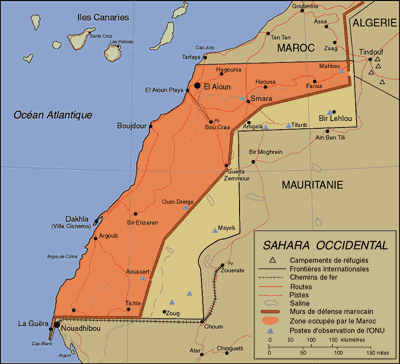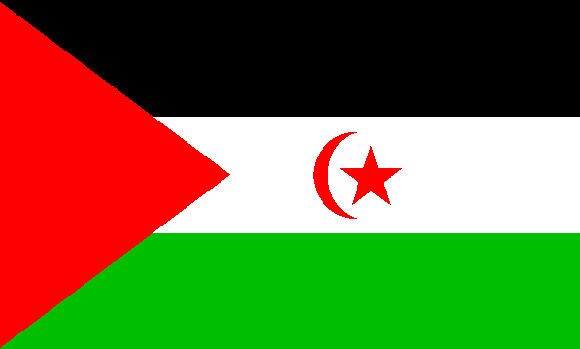Western Sahara | Generaly Aspect
 Western Sahara (Arabic: الصحراء الغربية; transliterated: as-Ṣaḥrā' al-Gharbīyah; Spanish: Sahara Occidental) is a territory of North Africa, bordered by Morocco to the north, Algeria to the northeast, Mauritania to the east and south, and the Atlantic Ocean to the west. Its surface area amounts to 266,000 square kilometres (103,000 sq mi). It is one of the most sparsely populated territories in the world, mainly consisting of desert flatlands. The largest city is El Aaiún (Laâyoune), which is home to over half of the population of the territory, the whole estimated at just over 500,000.
Western Sahara (Arabic: الصحراء الغربية; transliterated: as-Ṣaḥrā' al-Gharbīyah; Spanish: Sahara Occidental) is a territory of North Africa, bordered by Morocco to the north, Algeria to the northeast, Mauritania to the east and south, and the Atlantic Ocean to the west. Its surface area amounts to 266,000 square kilometres (103,000 sq mi). It is one of the most sparsely populated territories in the world, mainly consisting of desert flatlands. The largest city is El Aaiún (Laâyoune), which is home to over half of the population of the territory, the whole estimated at just over 500,000.Western Sahara has been on the United Nations list of non-self-governing territories since the 1960s when it was a Spanish colony. The Kingdom of Morocco and the Polisario Front independence movement, with its Sahrawi Arab Democratic Republic (SADR) govenment, dispute control of the territory.
Since a United Nations-sponsored ceasefire agreement in 1991, most of the territory has been controlled by Morocco, and the remainder by the Polisario/SADR, backed by Algeria. Internationally, major powers such as the United States have taken a generally ambiguous and neutral position on each side's claims, and have pressed both parties to agree on a peaceful resolution. Both Morocco and Polisario have sought to boost their claims by accumulating formal recognition, essentially from African, Asian, and Latin American states in the developing world. Polisario has won formal recognition for SADR from 46 states, and was extended membership in the African Union, while Morocco has won recognition for its position from the Arab League. In both instances, recognitions have over the past two decades been extended and withdrawn according to changing international trends.
www.klimanaturali.org

